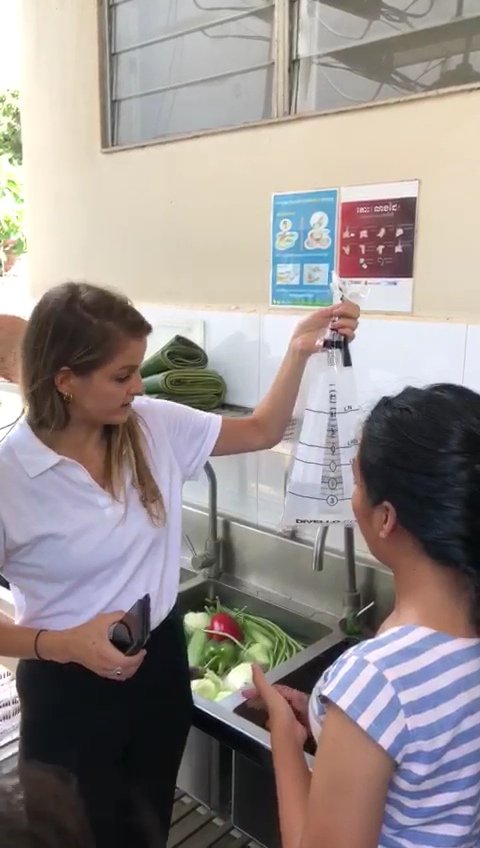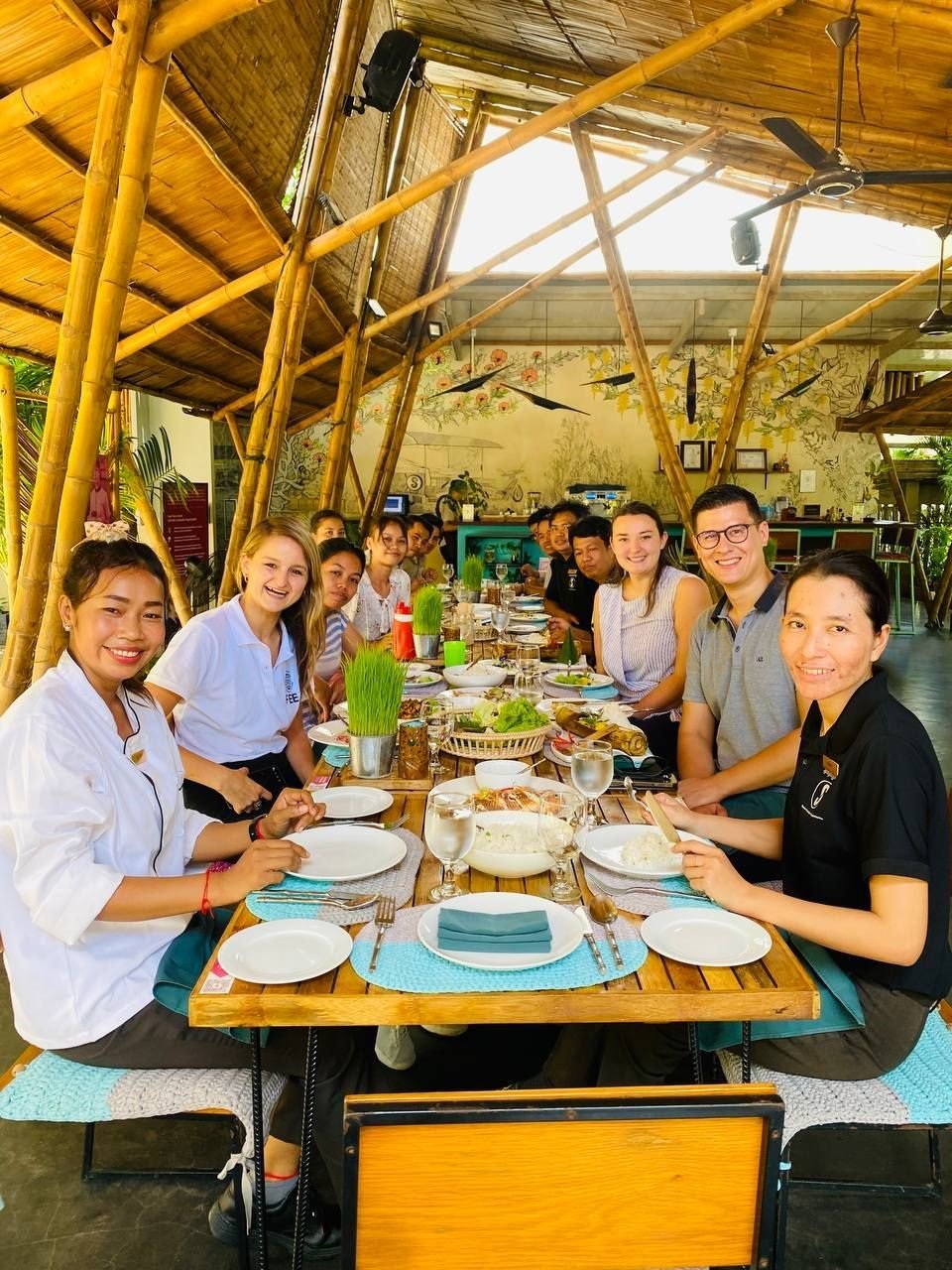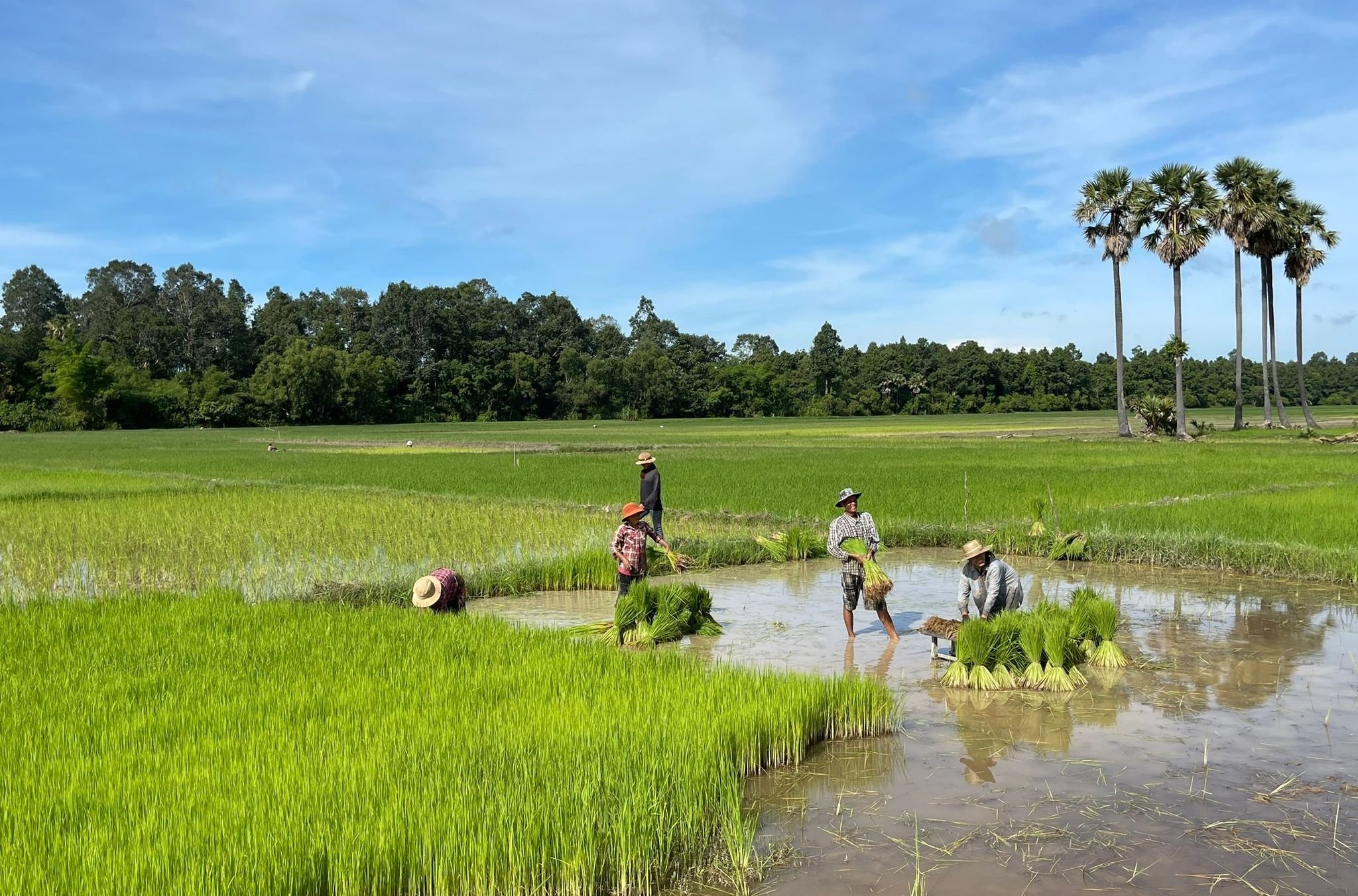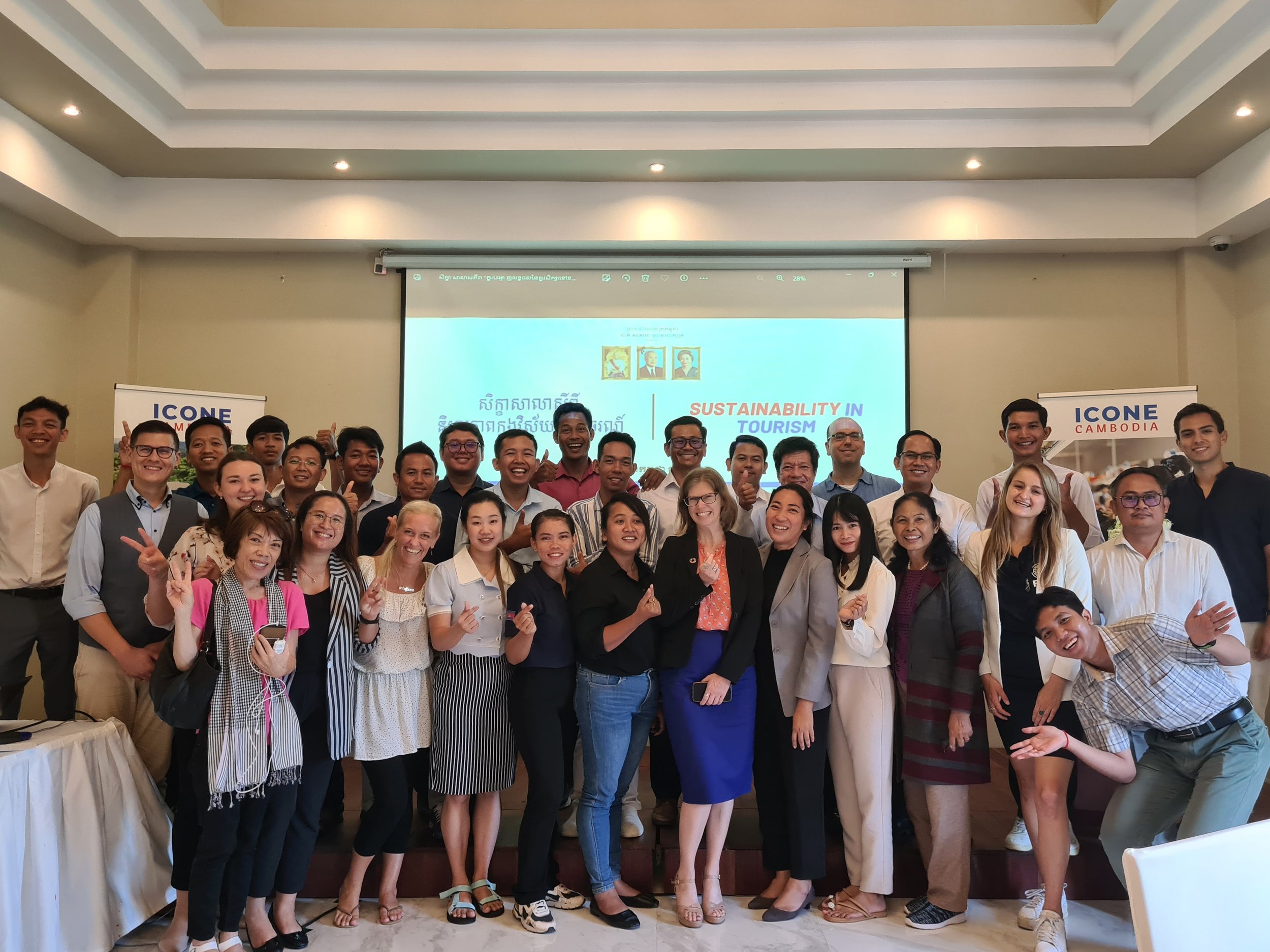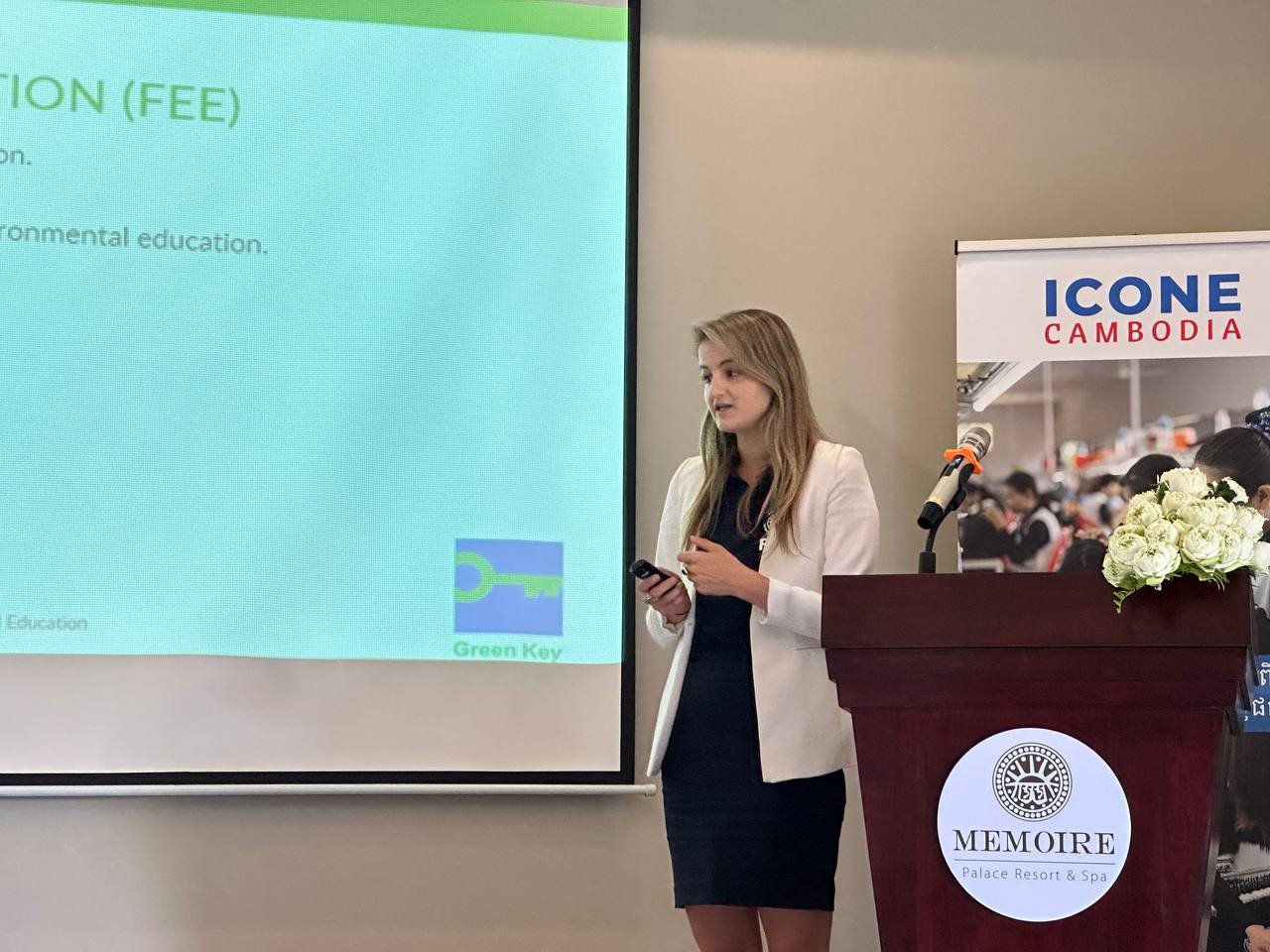With education for sustainable development (ESD) at the heart of our work, we are excited to have reached a significant milestone this past July in our ongoing project with the Deutsche Gesellschaft für Internationale Zusammenarbeit (GIZ) which seeks to promote sustainable tourism practices in Cambodia through environmental education.
In 2022, the Foundation for Environmental Education (FEE) and the Improved Competitiveness of National Enterprises (ICONE) programme of the Deutsche Gesellschaft für Internationale Zusammenarbeit (GIZ) launched a new project to support sustainable tourism in Cambodia, with FEE’s Eco-Schools and Green Key programmes providing a framework for implementation.
As part of this project, Green Key Coordinator and Project Manager, Claudia Bogensperger travelled to Cambodia last month to participate in a regional conference on sustainability in tourism organised by the ICONE programme and to deliver an introductory course on sustainable tourism to three hospitality schools in Cambodia. The conference kicked-off this joint project, with various stakeholders from the tourism and hospitality industry engaging in discussions and workshops about customers' perspective on sustainability, waste management, zero plastic approaches, and capacity building of the local industry. Green Key presented practical examples of sustainable tourism from the Green Key International network, and the role of certification programmes in furthering sustainability within the industry. The conference offered a platform for exchange, collaboration, and collective learning.
Another key element of the project has been the development and delivery of the "Basics in Sustainability in Tourism & Hospitality" course. This was delivered by Ms. Bogensperger to teachers of École d'Hôtellerie et de Tourisme Paul Dubrule (EHT), Pour un Sourire d'Enfant's (PSE) and SPOONS. The course addresses topics such sustainable purchasing, emission reduction, waste minimisation and management, and social sustainability. The aim is to equip teachers with a basic understanding about sustainability in tourism and be able to pass along their knowledge to their students. To ensure a holistic approach to the course, teachers from various departments, such as Food & Beverage, Communications, Housekeeping, and Maintenance participated.
Fundraising and Marketing Manager of SPOONS, Dym Chandy Loeung explains:
Participating in the three-day Sustainable Tourism Development course was an enlightening experience that deepened my understanding of core green tourism principles, and I'm now equipped with the knowledge and passion to promote responsible and sustainable travel, as well as the tips to make our NGO and social enterprise more eco-friendly.
The course will also function as important resource for those schools aiming to be certified with the Green Flag of the Eco-Schools programme, as the inclusion of environmental education in a variety of different curriculum areas is central to the Seven Steps methodology of the programme. This has also been pointed out by Project and Communications Manager of EHT Paul Dubrule, Enrique Blanco:
Contributing to EHT Paul Dubrule's actions in becoming an NGO and TVET green school model, our teachers and team members were privileged to receive a comprehensive course in sustainability in tourism and hospitality. Delivered by Ms. Claudia Bogensperger from the Foundation of Environmental Education (FEE), this learning experience included core green principles and practical examples demonstrated through group activities to apply sustainable practices related to resource consumption, waste management, biodiversity awareness, and more!
Green Key Coordinator and Project Manager, Claudia Bogensperger reflected on her experience in Cambodia, saying,
It was an absolute pleasure to work together with various stakeholders from the tourism and hospitality sector in Cambodia and learn more about the inspiring work they are already doing in the realms of sustainable tourism. To create a truly sustainable industry, everyone needs to be involved in the process, and we need to work on different models of sustainability that are not only based on but support geographical and cultural differences. That is why at FEE, our approach is to stimulate capacity development through collaborations with local organizations. Recognising that sustainable practices are best tailored to fit the unique characteristics of each region, we believe that empowering local entities is central to achieving holistic and impactful outcomes.
This project in Cambodia marks an important step in promoting sustainable tourism practices within the country. By mainstreaming sustainability into the local context and promoting inclusivity among all stakeholders, the seeds for a thriving and responsible tourism industry in the country have been planted. For the long-term success of the project, it is critical to cultivate sustainable tourism practices that not only benefit the environment, but also empower local communities. We look forward to continuing to do so in partnership with GIZ Cambodia and the ICONE programme.
Copyright Pictures: Claudia Bogensperger


